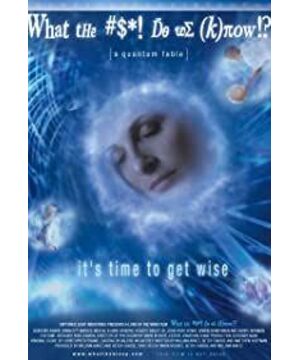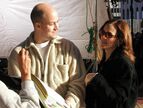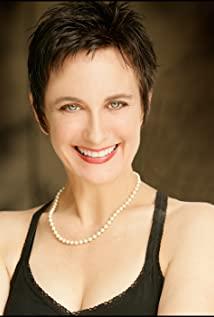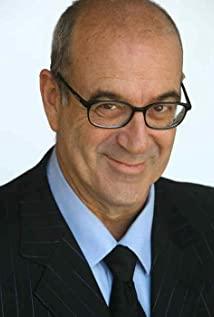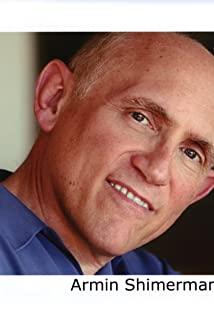Created in 2004, "How Much Do We Know? , divided into two narrative lines: one is the plot narrative of the divorced photographer Amanda; the other is the documentary narrative of several scholars. The film uses visual special effects, animation, and vivid images, so as not to make the whole film obscure. I watched this film three times, and what impressed me the most was the following points, which may not be written from the perspective of quantum theory or theology, but four points that really affected me:
be a thinking reed
At the beginning of the film, many scholars questioned, and one of them raised the "Three Questions in Life": Who are we? Where are we from? where are we going?
This is similar to the self-introduction of the well-known "Journey to the West" Tang monk: "The poor monk Tang Sanzang came from the Tang Dynasty in the east, and went to the west to worship Buddha and get scriptures."
French painter Gauguin, there is a famous painting: "Where do we come from? what are we? Where are we going? , which coincides with the three ultimate questions of this philosophy: Who am I? where am i from? Where are you going?
Asking yourself some deep questions will open up a whole new path in your life.
Regarding asking questions, Charlie Munger, the golden partner of Warren Buffett, also gave this advice: ask yourself one "why" after another, and you will be able to think better. By asking "why" one after another, you begin to gain universal wisdom and greater insight.
The so-called reality is just the tip of the iceberg
The film talks about a proven scientific experiment: If a person is asked to scan his brain with X-rays or computer technology and let him look at something, he will find that a specific area of his brain is glowing. Then have him close his eyes and imagine the same object. When he imagined it, that particular area of his brain actually glowed, as if he had seen it with his own eyes.
Who actually saw it? Did the brain see it? Or did the eyes see it?
What you see is real, but does it have to be all reality?
In the film, it is mentioned that the brain processes 400 billion bits of information per second. After this information enters the body, our body organs and nerve cells will filter and process it layer by layer, and finally we may only realize that it is the most beneficial to ourselves. 2000 bits of information, the information we are aware of, about the environment, our bodies, and time.
That brings up the question, what is reality? Maybe what we think is real is just the tip of the iceberg of reality.
Emotions, Affect Your Happiness Index
In the film, Amanda participated in a wedding shoot. It was this sensitivity to marriage betrayal that Amanda mistakenly thought that the groom had an affair with the bridesmaid. After she had a relationship with a man at the wedding scene, she fell into self-blame. Facing herself in the mirror, she denounced her thighs as thick and she became ugly and old. In fact, this process was also a process of her self-examination. The world view of life begins to collapse. In the end, Amanda was relieved, just like I love U painted on her thigh, she learned to accept her imperfections, learned to laugh at life, and entered a whole new world.
Guru Ramtha said, " If you can't control a certain emotional state of yours, you're bound to become addicted to it ",
Because of the failed marriage in the past, Amanda had a deep fear of love, and because of the disturbance of this emotion, it made life worse. We should let the concept of "me" disappear, and re-examine our identity and personality on the basis of putting aside the previous "old me".
There is a saying in emotional psychology: "Subconscious focus selection determines happiness or pain in life", when you hand over your subconscious selection mechanism to positive and positive, one day you will find that all the good things in the world are not with you. and encounter.
There is no right or wrong, everyone is God
Near the end of the film, master Ramtha and theology professor Miceal Ledwith pointed out that the only habitable planet in the galaxy has been conquered by a huge religious force. Do you know why? Because people establish the concept of right and wrong: "If I do this, I will be punished by God; if I do that, I will be rewarded by God." Miceal Ledwith said that this is a lame description, which seems to be for the sake of Our lives show the way, in fact completely ignoring bad outcomes. Because things can't really be classified as good or bad, and our way of judging things is too narrow.
Extending to our current life, sometimes it is easy for us to judge someone or something. When we see negative news or hot events on the Internet, we stand on the commanding heights of morality and blame others, thinking that what others are doing is wrong.
Everyone's experience and experience are unique in the world, and it is difficult for you to judge whether the behavior of others is really right or wrong, and this is also determined by the limitations of our own position and perspective.
But does that mean that you support crime, debauchery, and depravity? No, it's just that when we deal with things and look at problems, we need to improve our understanding and expression.
Some people say that this documentary is biased towards the taste of spiritual people, but I actually think it is suitable for everyone at the moment. Anxious and busy work and study, monotonous social life, and sensitive and fragile emotional experience may all try to tell you in various ways: you need time to think and explore, to understand yourself, the society you live in, and what you are in. living world.
Finally, to borrow the words of a scholar in the film, give it to yourself: " Your consciousness affects the people around you, affects material properties, affects your future, and you are creating the future. "
View more about What the #$*! Do We (K)now!? reviews


